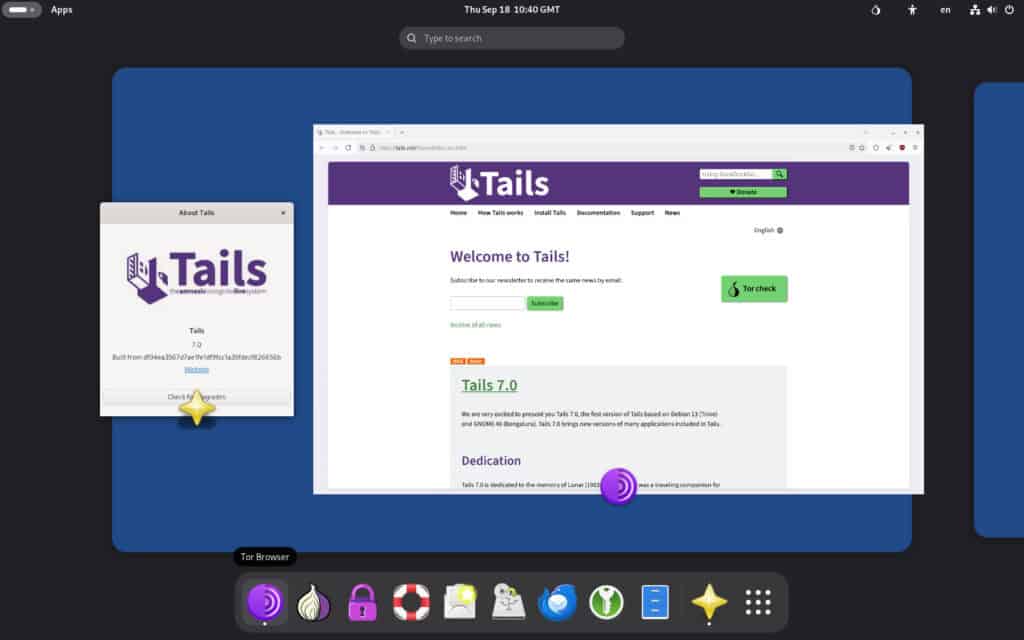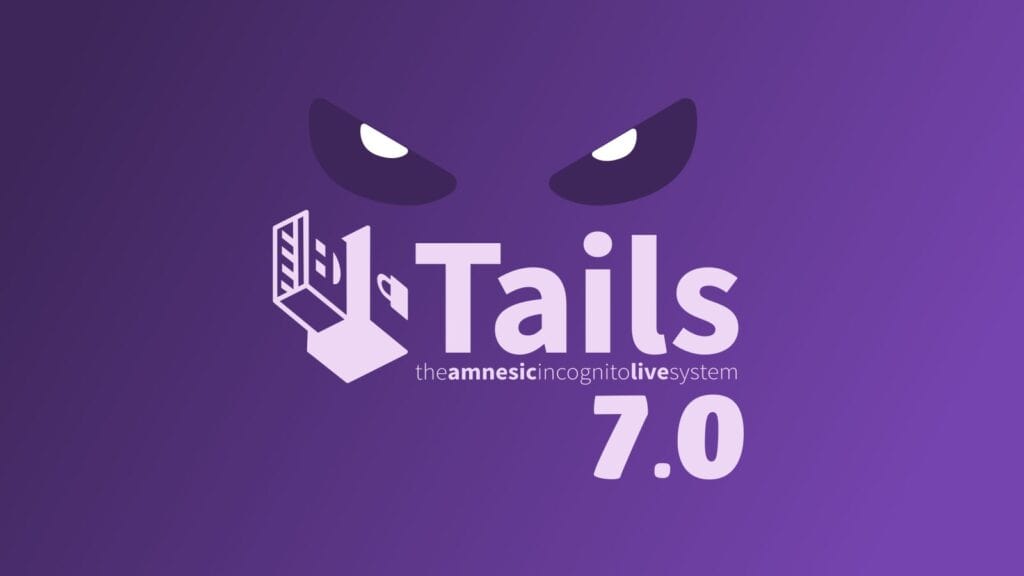The Tails project has announced the release of its privacy-focused Linux distribution, Tails 7.0, a major update that shifts the privacy-focused Linux distribution to a Debian 13 “Trixie” base and the GNOME 48 “Bengaluru” desktop.
One of the most visible changes in Tails 7.0 is a faster startup. By switching image compression from xz to zstd, the system now boots 10–15 seconds quicker on most machines.
The trade-off is a slightly larger ISO and USB image, approximately 10% larger. The team warns that low-quality USB sticks may slow boot times, recommending users buy from reliable retailers to avoid counterfeits.
Tails 7.0 also ships a wide range of updated applications, including:
- Tor Browser 14.5.7 and Tor client 0.4.8.17
- Thunderbird 128.14.0esr
- Electrum 4.5.8
- OnionShare 2.6.3
- KeePassXC 2.7.10
- Kleopatra 4:24.12
- Inkscape 1.4 and GIMP 3.0.4
- Audacity 3.7.3

On top of that, Tails 7.0 benefits from improvements made across GNOME 44 to 48. Key highlights include redesigned Settings sections for Accessibility, Sound, and Input devices, an Overamplification option, a new dynamic workspace indicator, and better support in the Screen Reader, such as table navigation and sleep mode.
On the hardware side, Tails now ships with Linux kernel 6.12, expanding support for newer graphics cards, Wi-Fi adapters, and other devices. Memory requirements have increased, with a minimum of 3 GB of RAM now necessary to run Tails. Systems below that threshold will receive a notification on boot. The project estimates fewer than 2% of users will be affected.
Lastly, several utilities have been removed, including the Places menu, unar, aircrack-ng, Power Statistics, and the sq package. In most cases, alternatives remain available, or users can install removed tools manually via the Additional Software feature.
Automatic upgrades are supported only from Tails 7.0 RC1 and 7.0 RC2. Users running earlier versions will need to perform a manual upgrade to move to the new release.
For full technical details, refer to the changelog or the release announcement.
